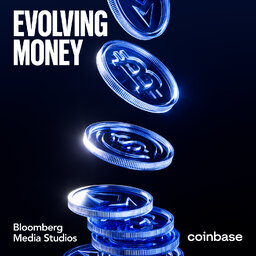Bloomberg Surveillance TV: November 12, 2024
What would YOU like to hear about on Bloomberg? Help make shows like ours even better by taking our Bloomberg audience survey.
- Tom Steyer, Galvanize Climate Solutions Co-founder, "Cheaper, Faster, Better: How We'll Win The Climate War" Author
- David Tinsley, BofA Institute Senior Economist
- William Dudley BBO, Bloomberg Economics & Former NY Fed President
Tom Steyer of Galvanize Climate Solutions says it's an "absolute necessity" for America to lead "the green transition." David Tinsley of BofA says, "The consumer continues to value experiences over goods." Former New York Fed President William Dudley believes the Fed is going to try to maintain its independent policy.
In 1 playlist(s)
Bloomberg Surveillance
Listen for the latest in finance, economics and investment. Jonathan Ferro, Lisa Abramowicz and An…Social links
Follow podcast
Recent clips

Evolving Money: Blue Chip Meets Blockchain (Sponsored Content)
16:48

Single Best Idea with Tom Keene: Anastasia Amoroso & Dina Esfandiary
02:48

Bloomberg Surveillance TV: February 20th, 2026
24:40
 Bloomberg Surveillance
Bloomberg Surveillance